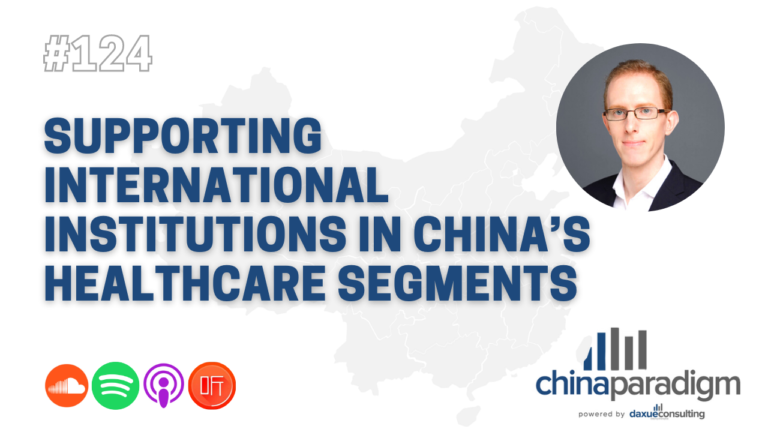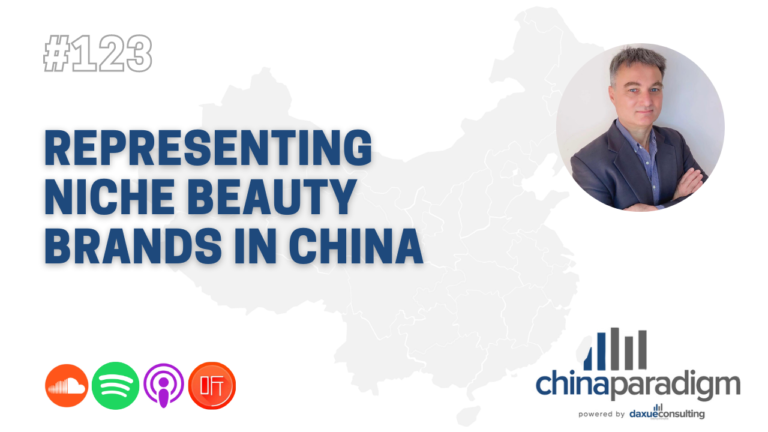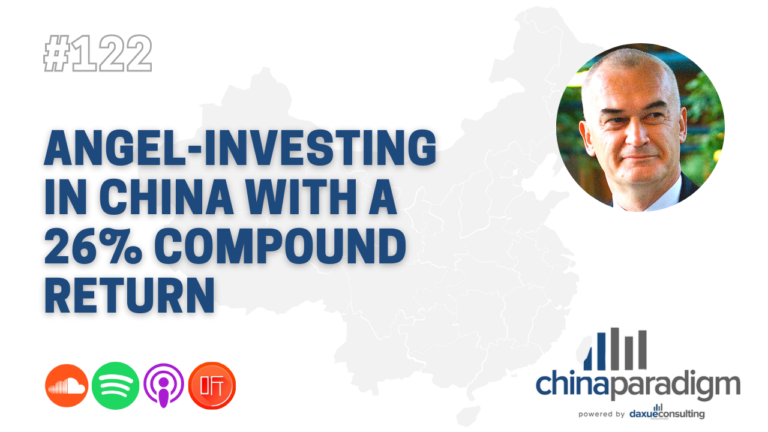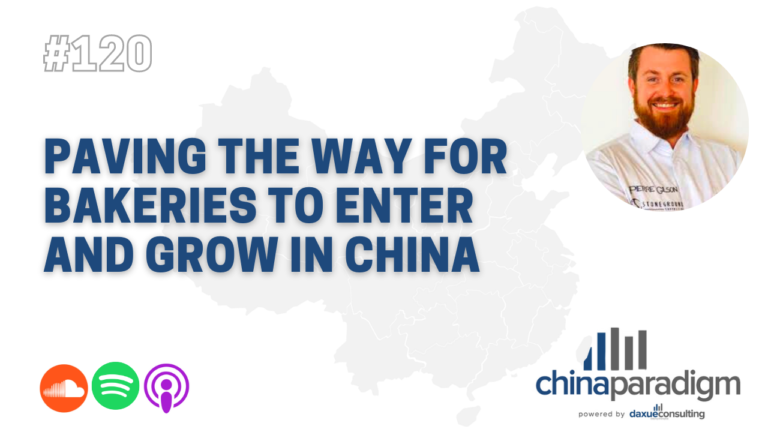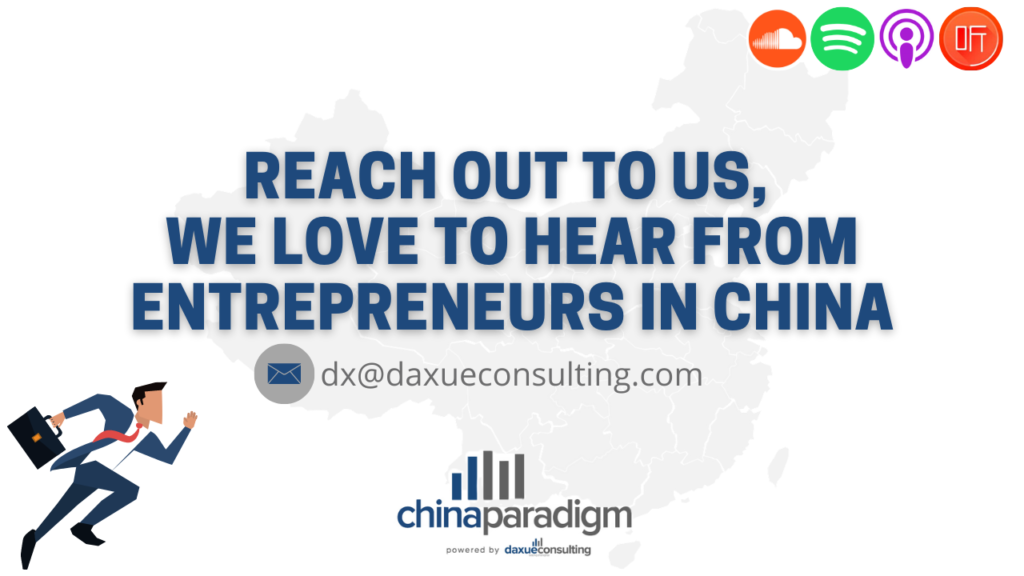China Paradigm interviewed Sebastien Gaudin, founder of The CareVoice, health tech company in China to discuss advances in the health tech industry in China and the specificities of this booming sector.
Sebastien Gaudin, Health InsurTech entrepreneur in China and 4x Founder
Upon graduating masters in pharmaceutical and commercial sciences in Essec in France, Sebastien Gaudin has a long experience working in the healthcare industry. He held different positions in business development and marketing in Sanofi, the world leading pharmaceutical company, for twelve years. He arrived in Shanghai in 2011 as a marketing director for the group and decided to begin his entrepreneurial adventure there.
In 2014, he had the idea to run a start-up in China that could empower consumers to make better health decisions. Later, he also launched Health care drinks and Start up Care, healthcare insurance companies in China.

The CareVoice, the 2.0 healthcare solution in China
The CareVoice is a healthcare company in China which aims to transform healthcare experience to be more consumer-centric.
The CareVoice has been created to address the mistrust from the consumer for medical services. Indeed, today a lot of Chinese people are moving from one hospital to another and are not compliant to doctors’ prescription or recommendation.
Thus, the CareVoice is first an app for people to share their experience and get ratings and recommendations for providers and doctors to be more confident about their choice. But Sebastien Gaudin explained that they pivoted to a SaaS model recently, providing insurance as a service to interact, offer services, and engage with the users.
As a Saas business in China, The CareVoice focus on the privatization of healthcare which means they mainly work with private clinics, private hospitals or VIP services of public hospitals. But the other side is that they also work with insurers as a software to help them change and move out from their prayer role to more health partner role with their insurance members.

Last year, this healthcare company in China had $2M annualized recurring revenue with half-a-million users, close to 10 insurance clients and over 100 employers as part the beneficiaries for the employees of the solution.
How to get known in China’s entrepreneur network?
Sebastien Gaudin is very present in the media where press release were published after he participated in forums in Amsterdam, Shanghai, and Hong-Kong.
“I think at the very beginning, it helps you to start to be a bit more recognized as a startup, or emerging.”
According to him, winning competitions and meeting potential future competitors is an excellent way to enter entrepreneurial circles in China. In addition, it allows you to practice pitch and potentially to meet some angels around. It is a unique way to show that your start-up is maturing and gaining recognition in the sector in the Chinese market.
For business development and seeking sales purposes, participating in forums, events and round tables are also very relevant. It was a winning bet for The CareVoice at that time:
‘That has been very effective; directly meeting CEOs, C-Level executives in those conferences, people in charge of innovations who are potentially the first sponsor or the first guys that are going to bring you inside their company.’’
And finally, entrepreneurs in China must not forget to look beyond China. Entrepreneurs are developing everywhere and often find good opportunities in Asia: it is also part of premarketing to start to see how it is perceived beyond China Mainland.
Healthcare in China: How to deal with specific regulations?
The central regulation is about business licenses and how you can operate in the country, especially with VIE. Viable Interest Equity is indeed equity you have to partner with to invoice your clients because a foreign company in China has no right to invoice itself.
Sebastien Gaudin explains that the main regulation they are facing is about personal data in China.
‘‘People tend to think that China’s regulation on data is behind or not necessarily aligned with other countries. If you go through the Chinese regulation, guidance or the latest issuance, they are also very strict.’’
But TheCareVoice takes this very seriously and also follows international guidelines: they comply with both US regulations (HIPAA) and with Europe GDPR because they have partner insurers or on-per-service providers that are requiring this.
‘‘So definitely, user data privacy and security are highly important. You can’t be an insurance company if you don’t comply with this regulation.’’
And finally, when starting a healthcare company in China, you have to be careful with medical license regulations. But what The CareVoice is doing is not a medical diagnosis. It is a tool for the patients to help make their own decision, but it can’t replace a medical diagnosis by a licensed doctor. That’s why Sebastien Gaudin highlighted the fact that a healthcare business in China has to be very straight about the disclaimer. The content is high quality and comes from medical providers, but ultimately, it’s not replacing a medical diagnosis.
The main differences between the health tech industry in China and the West?
‘‘China is very, very advanced now. Interestingly, in insurance, they are hearing a lot about what’s happening here. A company like Ping An became the number one insurance in terms of business size worldwide. And more importantly, in terms of innovation, they’ve been investing in the technology space.’’
And this race to modernize the healthcare industry in China is a phenomenon that is happening all over Asia:
“Southeast Asia is following what’s happening in China. So very quickly, all these smaller countries, Southeast Asian countries, that already have mobile first, I think, are going to be sub versing direction of what to do.”
China Paradigms is committed to sharing knowledge for economic growth in China





